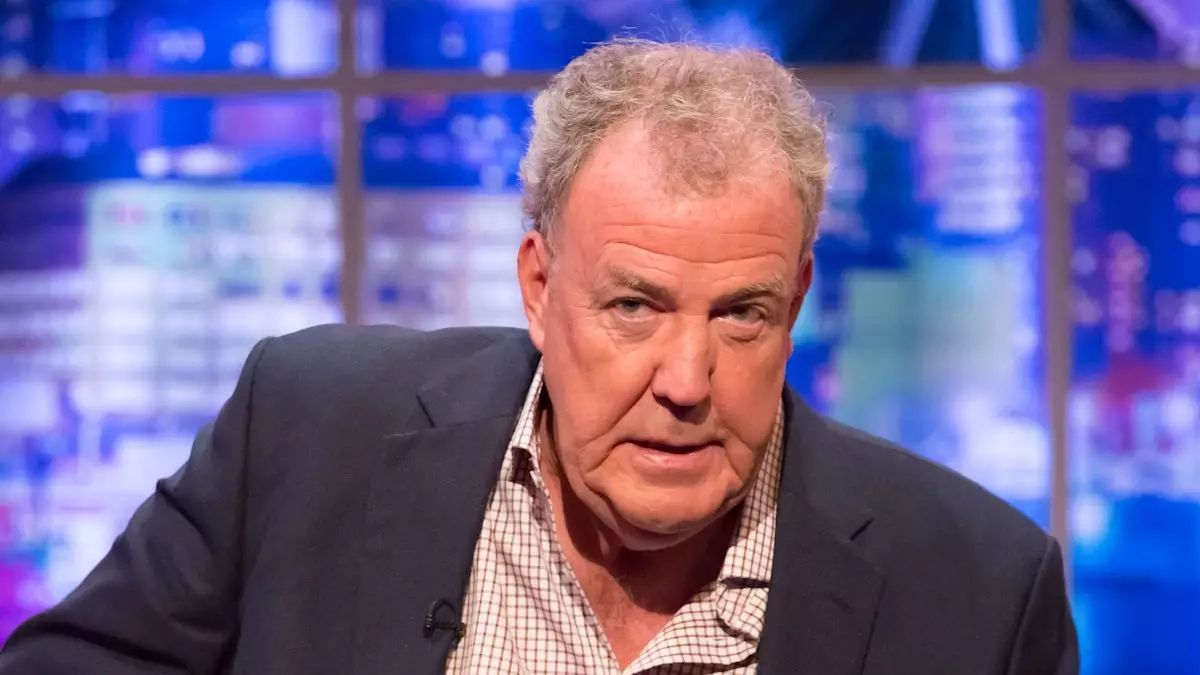Recently, Jeremy Clarkson, the well-known presenter of “Clarkson’s Farm,” shared a striking personal account regarding his health, shedding light on the fragile nature of life. In a column for the Sunday Times, Clarkson recounted the onset of alarming symptoms after a seemingly enjoyable holiday characterized by swimming in the serene yet powerful Indian Ocean. It began subtly; he noticed increased difficulty in ascending his home stairs—a mundane task that suddenly felt monumental. What followed was an unsettling realization that his health was deteriorating at an alarming rate. Clarkson’s experience is a stark reminder of how quickly our body can signal distress.
The gravity of his situation became evident when he experienced pronounced symptoms: clamminess, chest tightness, and a troubling tingling sensation in his left arm. It was the unexpected passing of former Scottish first minister Alex Salmond that prompted Clarkson to seek immediate medical attention. The unfortunate timing of Salmond’s death, attributed to a heart attack at just 69 years of age, served as Clarkson’s wake-up call—an undeniable reminder that life is unpredictable, and health can falter in an instant.
At the hospital, medical personnel informed him that he was on the brink of a severe health crisis. With a heart artery completely blocked and another nearing the same fate, Clarkson was whisked away for a stent procedure to restore proper blood flow. This experience is not merely about Clarkson’s personal struggle; it underscores a significant issue that affects many as they navigate the challenges of aging and lifestyle-related health risks.
Upon reflecting on this health scare, Clarkson humorously mused about making more conscientious lifestyle choices, even questioning basic habits like hydration and rethinking the appeal of celery. This candid approach to his health journey highlights the often-overlooked importance of proper nutrition and self-care. Clarkson’s vulnerability shines through as he admits that his drive for improved health is motivated by the desire to keep pace with his son, Finlo, suffering the indignity of breathlessness during outings. This familial concern suggests that personal health is intricately intertwined with our relationships and responsibilities.
Compounding these health issues is Clarkson’s long-standing battle with hearing loss, which he previously revealed could increase his risk of dementia. He characterized his experience with hearing impairment as a slow burn—a frustration endured over twelve years. It is a poignant reminder of the broader implications of untreated health conditions. The connection between auditory health and cognitive decline adds another layer of complexity to Clarkson’s narrative, underscoring the interplay between physical ailments and mental well-being.
In embracing the use of hearing aids, Clarkson’s journey ultimately becomes one of empowerment. He is evolving from passive acceptance to proactive management of his health, embodying a shift that many need to consider. As Clarkson’s story unfolds, it serves to inspire individuals to confront their health challenges head-on. Reflecting on experiences like his, we are all reminded of the delicacy of our health and the importance of seeking help when faced with distressing symptoms. In doing so, Clarkson not only reveals his apprehensions but also encourages openness regarding health concerns, illuminating a path for others grappling with similar fears.

